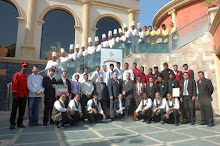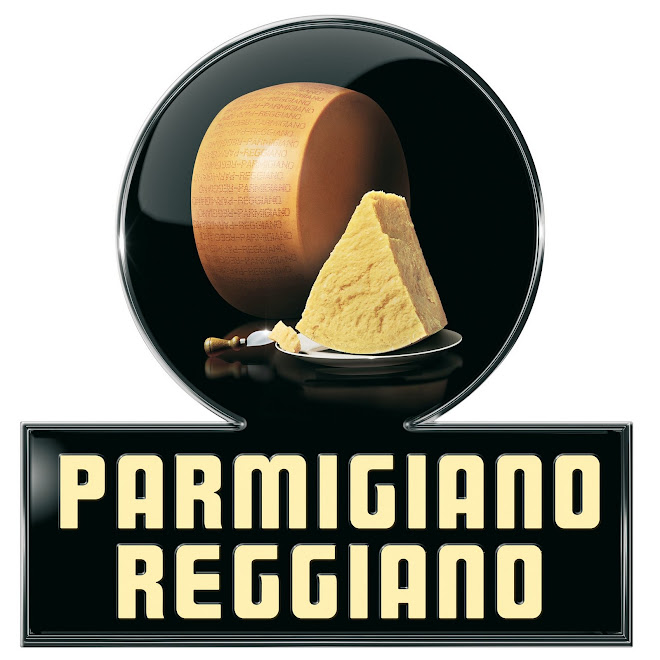http://www.oasis-mag.com/site/foodie/
Il Villagio (part 1)
Behind the Scenes at Il Villaggio: The Man From Salerno (by Rashed Islam)
I arrive at Il Villaggio Restaurants and Lounges early one afternoon, set on the edge of Jeddah’s busy Andalus Street, I have little difficulty in finding the place, it is located on one of the most popular restaurant streets in town, and neighbours Chilis, TGI Fridays and a soon to be open OTB (on the Border Mexican Grill). However I am not here to dissect the neighbourhood, I have come to meet Executive Chef Emanuele Esposito, one of the few Italian Chefs working in this Italian Restaurant in Jeddah.
Smartly dressed in his ‘civilian’ clothes, he meets me at the door and guides us to a conference room, away from the hustle and bustle of the kitchen. His background is interesting to say the least; arriving in Jeddah in November 2006 he has been here for over two years and is already learning Arabic. Thirty four years old and originally from Salerno Italy (50 km outside Naples) Chef Emanuele left school and never set out to become a chef. “Originally, when I was young, I wanted to become a teacher, for the Italian language, I had many friends with similar ideas, but it was not to be my future”. “At seventeen, I enjoyed cooking and found a job in a kitchen of a hotel, my first day started at 9am and I did not leave until 3am the following morning, it was a busy time for me” .
In the summer he worked twelve to thirteen hour days. He explains how he had to start from the bottom “In Italy you always start from the lowest level, you work your way up and must earn respect from your colleagues; everyone plays a part, from pot cleaning to dish washing”.
But Chef Emanuele persevered and his teacher in the kitchen encouraged him to learn to cook in a south Italian style, explaining the difference: “In Italy there is no Italian cuisine, there are over twenty one different cuisines, you go to Milan and the risotto is made with butter, but in the south you may find it is made with olive oil. There are different recipes for the same dishes. Lasagna can be made with Bolognese but In Italy they make it with eggplant, there are so many different regions“
Over time he was promoted and trained in everything from preparation of fresh pasta, to preparing homemade Gelato. He had found his calling. Today he heads a kitchen of over seventeen employees in Jeddah, Saudi Arabia.
He has spent time in Brighton- England, Oslo- Norway, Germany, and even spent four years in Australia. Does he miss Italy? “of course I’m Italian, and there is a lot of difference here from back at home, but I trust this country and I am happy here”.
He loves his job, it is clear from his expression as he passionately describes his work, “In the Kitchen I like to teach people, give them a chance, it is then up to them to take it. I cannot understand why so many young people focus on one career when there are so many other jobs available.”
Previously Emanuele had trained twelve Saudi Staff to work in the Kitchen, but was disappointed to find many of them left. Some people still consider restaurant work beneath them. “Some went on to work in other restaurants; however others did not want to learn.” It is the old problem of leading a horse to water, but not being able to make it drink “I cannot force people to enjoy cooking; some people want something I cannot give. Whether you are Filipino, Saudi, whatever your race or Religion, everyone is the same. I cannot treat anyone different or give special treatment to anyone.”
He goes on to explain how respect is key “Respect is important for me, I respect the cleaner and general manager on the same level, we started training disabled people here in the restaurant and the one guy we currently have is doing an excellent job, everyone is treated the same“.
“In Italy we have a rule that there should be equal opportunities for all, nothing is different here at Il Villaggio, everyone has their problems, there is no black and white, everyone is the same, it costs us nothing to give a chance to someone.”
He describes how in his eyes experience is irrelevant, and he looks at people’s passion for work instead of their CV. “If they like to work, a cleaner can easily become a chef tomorrow, everyone can become a chef, look at the new American president, who would have thought what he achieved was possible, the world is changing and anything is possible, everyone can achieve what they want if they put their heart in it”
“Many Saudi Ladies have asked us to work in the restaurant; however in the current climate this is difficult. However, I hope that in the future we will be able to give opportunities to ladies to become a chef too.”
He sees no reason why a Saudi cannot become the best Italian cook there is, “there is no official language in the kitchen, Italian food is everywhere in the world, the food is a language in itself, I would like to see a Saudi cook one day become the best Italian Chef, anyone that understands Italian Food can become an ambassador for the cuisine”
He is of course right, nationality is not a barrier, nor is gender, later that week I interviewed one of the finest chefs in Italy, she is a woman, and she has three Michelin Stars (the highest possible ranking), Chef Annie Feolde cooks rustic and traditional Italian food in her restaurant in Tuscany, and yet.. she is originally French.
I can see his disappointment as he describes those who left. “Some arrived in the restaurant expecting an easy ride, after a while they realized this was not the case, some workers find it difficult to maintain time keeping in Ramadan, while others want Friday off. They like a comfortable work life, but this is not always possible. Nothing comes easy in this line of work. This year is the first time I have taken holiday in over two years!” He has spent three years apart from his fiancé in Australia, but remains dedicated to his restaurant.
Emanuele has plans for the future and hopes to one day train Saudis in Jeddah before sending them on to Italy for short experience courses putting them in good stead to perhaps one day open a restaurant of their own. “When Saudis arrive out of college they know nothing about hospitality, but after my schooling, I had knowledge about food, hospitality, but most of what I learnt was on the job, day by day which is why learning on the job is so important.”
Time has escaped us, I am late for another meeting, I make my excuses and make an exit, promising to return a week later to shadow Emanuele on one of their busiest nights: Thursday, where diners across Jeddah descend on Andalus Street, start eating around 10 pm and often do not leave until 2am the following morning.
Read the second part of this interview in Oasis Magazine’s 7th issue (out in stores starting in April 2009).
mediterraneans

sabato 9 maggio 2009
Iscriviti a:
Commenti sul post (Atom)
















Nessun commento:
Posta un commento